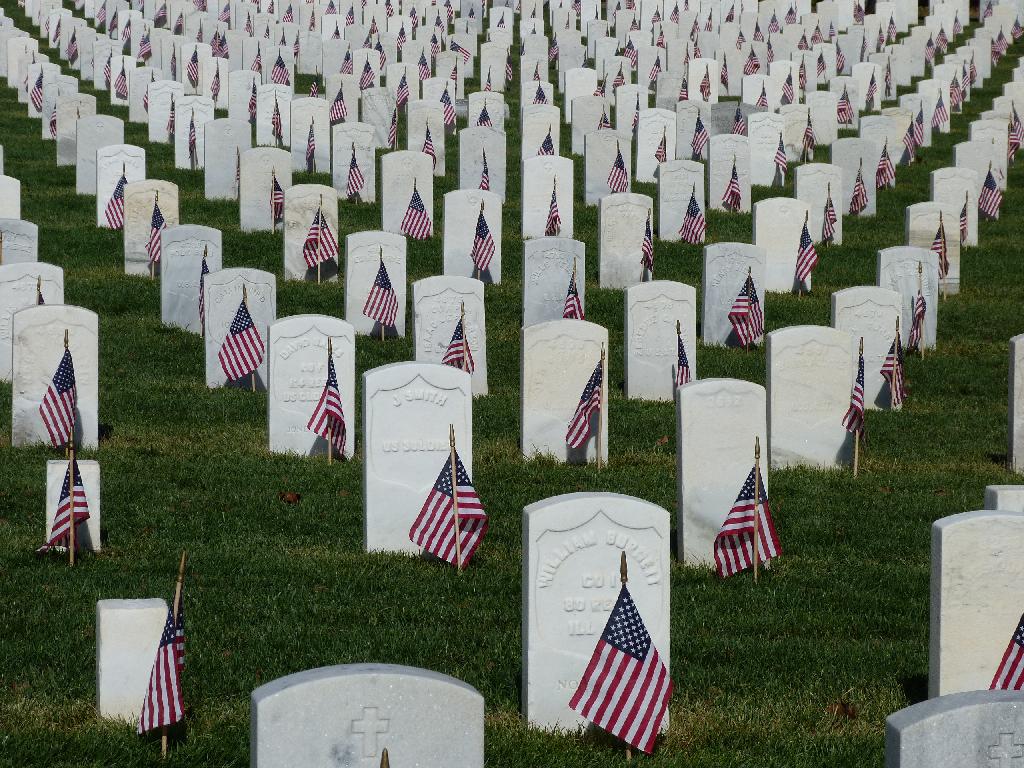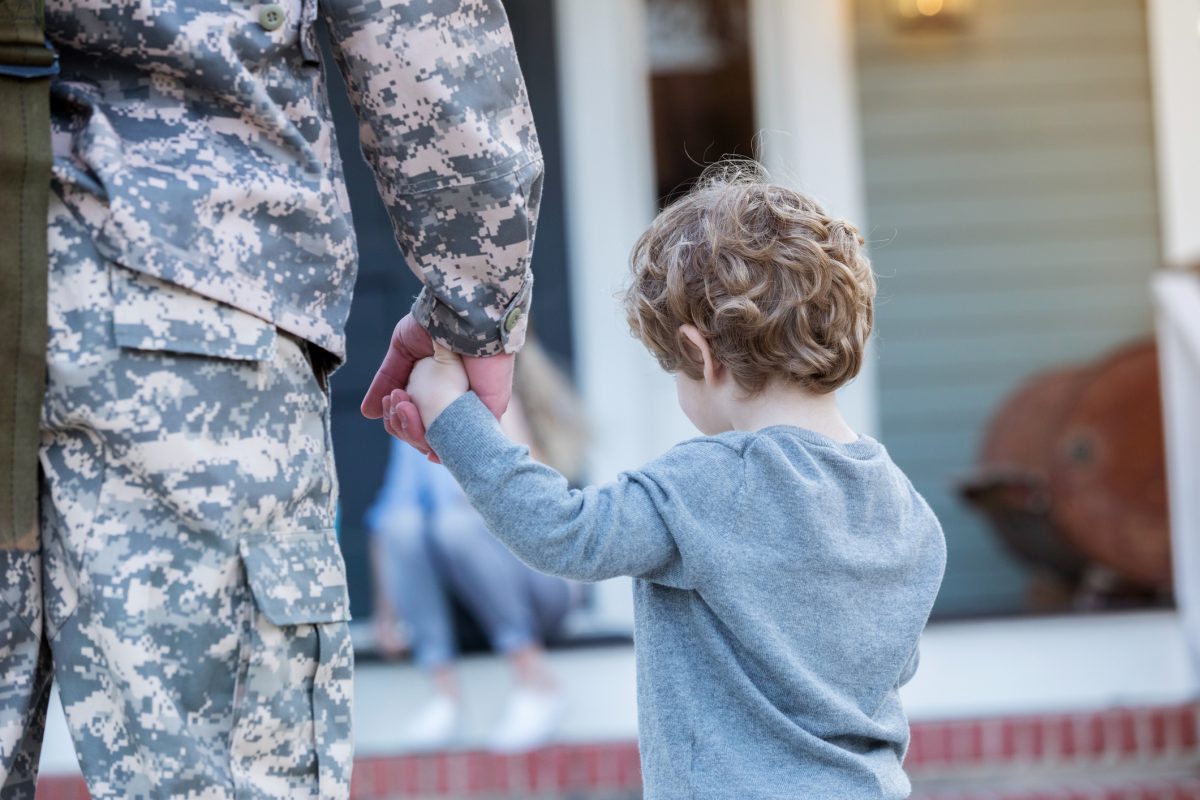There are a variety of veteran burial benefits provided by VA and non-VA sources. Claiming VA death benefits (including burial benefits) is never an easy thing to do, but early planning is the key to making sure a loved one’s final wishes are honored just as much as military service.
Many veterans want to be buried with honors in state or national veterans cemeteries; planning ahead helps make sure those honors are available when the time comes. Remember, loved ones have VA and non-VA options for veteran burial benefits so it’s important to know all the available options before deciding.
There are state burial benefits for veterans offered from most state governments, and state-run veterans cemeteries are an option to consider if a VA national cemetery is too far away. While you cannot draw VA benefits AND state benefits for burial at the same time, knowing your options is important when it comes time to make an informed choice.
VA Burial Benefits
In 2014 the Department of Veterans Affairs streamlined its burial benefits program to speed payments and help to families in need.
Those VA changes allow payment of burial benefits without requiring a written application. According to the VA official site, the “most eligible surviving spouses” will get “basic monetary burial benefits at the maximum amount authorized in law” thanks to automated processing.
The VA pays a flat rate for burial and plot or interment that includes a payment for non-service-connected death ($300 at the time of this writing and subject to change). A service-connected death qualifies for a burial benefit of $2,000 (at the time of this writing and subject to change).
Other VA Payment Considerations
The VA official site has several additional considerations depending on circumstances:
- For deaths on or after April 1, 1988 (but before October 1, 2011) VA will pay $300 toward burial and funeral expenses (for Veterans hospitalized by VA at the time of death).
- For non-service-related deaths on or after December 1, 2001 (but prior to October 1, 2011) $300 is offered toward burial and funeral expenses in addition to a $300 plot allowance or interment allowance.
- For deaths on or after December 1, 2001, but before October 1, 2011, VA offers up to $300 toward burial and funeral expenses and a $300 plot allowance or interment allowance.
- The VA provides a yearly revision for burial / plot allowances for deaths occurring after October 1, 2011 which began in fiscal year 2013 based on the Consumer Price Index for the preceding 12-month period.
- For deaths on or after April 1, 1988 (but before October 1, 2011) $300 is offered toward burial and funeral expenses for Veterans hospitalized by the Department of Veterans Affairs at the time of death.
Who Is Eligible To Receive the VA Veteran Burial Benefit
VA benefit guidelines require the recipient of VA burial benefits to meet a specific set of criteria including but not limited to the following:
-
- The Veteran has any discharge other than Dishonorable.
- The applicant was financially responsible for the veteran’s funeral, and have not been reimbursed by another source.
- The Veteran died because of a service-related disability, OR
- The Veteran was receiving, or entitled to receive, VA pension or compensation at the time of death, OR
- The Veteran died while hospitalized by VA, or while receiving care under VA contract at a non-VA facility, OR
- The Veteran died while traveling to or from care at VA expense to or from a specified place for the purpose of examination, treatment, or care, OR
- The Veteran had an original or reopened claim pending at the time of death and was entitled to compensation or pension prior to the date or death, OR
- The Veteran died on or after October 9, 1996, while a patient at a VA-approved state nursing home.
Other VA Burial Benefits
VA-provided burial benefits may also include headstones or markers, military funeral honors, and burial in a VA National Cemetery.
The VA advises there are situations which may require you to contact the VA national cemetery for assistance including scheduling burial honors for those who were on active duty at the time of death, and the following:
- Information pertaining to hours, services, and benefits unique to a particular cemetery
- Request for disinterment
- Interment cancellation
- Interment rescheduling
- Updates in information initially sent to the Scheduling Office
- Request for a relocation to another national cemetery
VA burial benefits do not include managing burial services at non-VA facilities including state cemeteries.
How To Apply For The VA Burial Benefit
There are several ways to apply for the VA burial benefit. You can apply online at Vets.gov, you can fill out and mail in a paper application which must consist of VA Form 21P-530, Application for Burial Allowance which must be sent by U.S. postal mail to the VA Pension Management Center in your state.
You can also visit a regional VA benefit office, or get the help of an accredited Veterans Service Officer at an agency such as the DAV, VFW, state veterans’ affairs offices, etc.
In most cases, starting your planning early is the best approach, but know that you may not be able to reserve an actual plot or similar physical space until the time of need; most pre-need planning has to do with making the right preparations rather than reserving the physical internment space itself.
VA Documentation Requirements For The VA Burial Benefit
VA benefit rules state that proof of death is required to claim the VA burial benefit, and all applicants for this benefit will need to submit bills and receipts showing that the applicant was financially responsible for burial.
This will include the need for a statement from the funeral home or other service provider that shows the following information:
- The name of the deceased Veteran
- The nature and cost of the funeral or memorial services
- Nature and cost of any merchandise purchased
- The amount of any credits offered to the payer
- The amount of any remaining unpaid balance for services, merchandise, etc
Time Limits For Applying For VA Burial Benefits
Time restrictions depend on whether the veteran had a death identified by the VA as service-connected or not. For non-service connected VA burial benefits, there is a two year time limit to apply following the veteran’s burial or cremation.
Those who were not eligible for VA burial benefits due to a veteran’s dishonorable discharge but later had the discharge upgraded by a military discharge review board have two years from the updated discharge to apply.
For service-connected deaths, there is no time restriction or deadline to apply for a burial plot, interment allowance, or other VA burial benefits.
When VA Will Not Pay Burial Benefits
No VA burial benefit is available in cases where the service member died on active duty, was serving in Congress at the time of death, or was a federal prisoner at the time of death.
Non-VA Burial Benefits
Burial benefits are not exclusive to the Department of Veterans Affairs. Most states have a state veterans cemetery that may provide similar benefits to qualifying families.
Each state has different requirements for interment; some may require state residency for a minimum number of years, there may be varying discharge requirements, and spouses may or may not be able to get burial benefits in addition to the service member depending on circumstances.
State veteran burial benefits often include military honors, a burial flag, and a memorial certificate depending on the state.
Veterans Burial Benefits at a Private Cemetery
Burial benefits when a veteran’s family chooses the loved one to be buried in a private cemetery may include a government headstone or marker, a burial flag, and other assistance. VA benefits are not available for spouses and dependents buried in a private cemetery.
The scale and scope of state veteran burial benefits will vary depending on the state, the facility, and other variables.
When you are engaged in pre-need planning with a state-run veteran cemetery or a private cemetery, be sure to ask 12 important questions about veteran burial benefits including free gravesites for veterans and related issues:
- Does the facility or the state require a vault or grave liner? Who pays for the liner?
- For private cemeteries, does a “free gravesite for veterans” require any additional purchase requirements of any kind including the purchase of a second gravesite for another loved one?
- For state cemeteries, will veterans with any discharge (other than dishonorable) get burial benefits or is the cemetery restricted to those with Honorable discharges only?
- How far in advance should pre-need appointments be made?
- How soon can arrangements be made once the veteran has passed away?
- For private cemeteries, what is the cost of having a spouse interred next to the veteran?
- If an additional gravesite is required, where is the site and how much is the fee?
- Check on any local restrictions on the headstone or marker on the grave?
- Is there an additional cost for the placement and maintenance of a free government headstone/grave marker?
- It is best to make pre-need arrangements in advance, but pre-need discussions usually do not include the physical reservation of a plot or place of interment. Is this true of the cemetery you’ve selected?
- Is there a comparison available between state veteran burial benefits offered in your state and the VA equivalent?
- Are there any residency requirements for veteran burial benefits at a private cemetery?
Information For Those Who Wish To Be Buried Overseas
The American Battle Monuments Commission (ABMC) is a U.S. government agency responsible for 24 overseas military cemeteries. However, most of these honor servicemembers serving in World War One and World War Two.
You can search the ABMC database for those honored in these cemeteries, but the ABMC official site does not list ongoing programs or services for those who wish to be buried overseas in such facilities.





